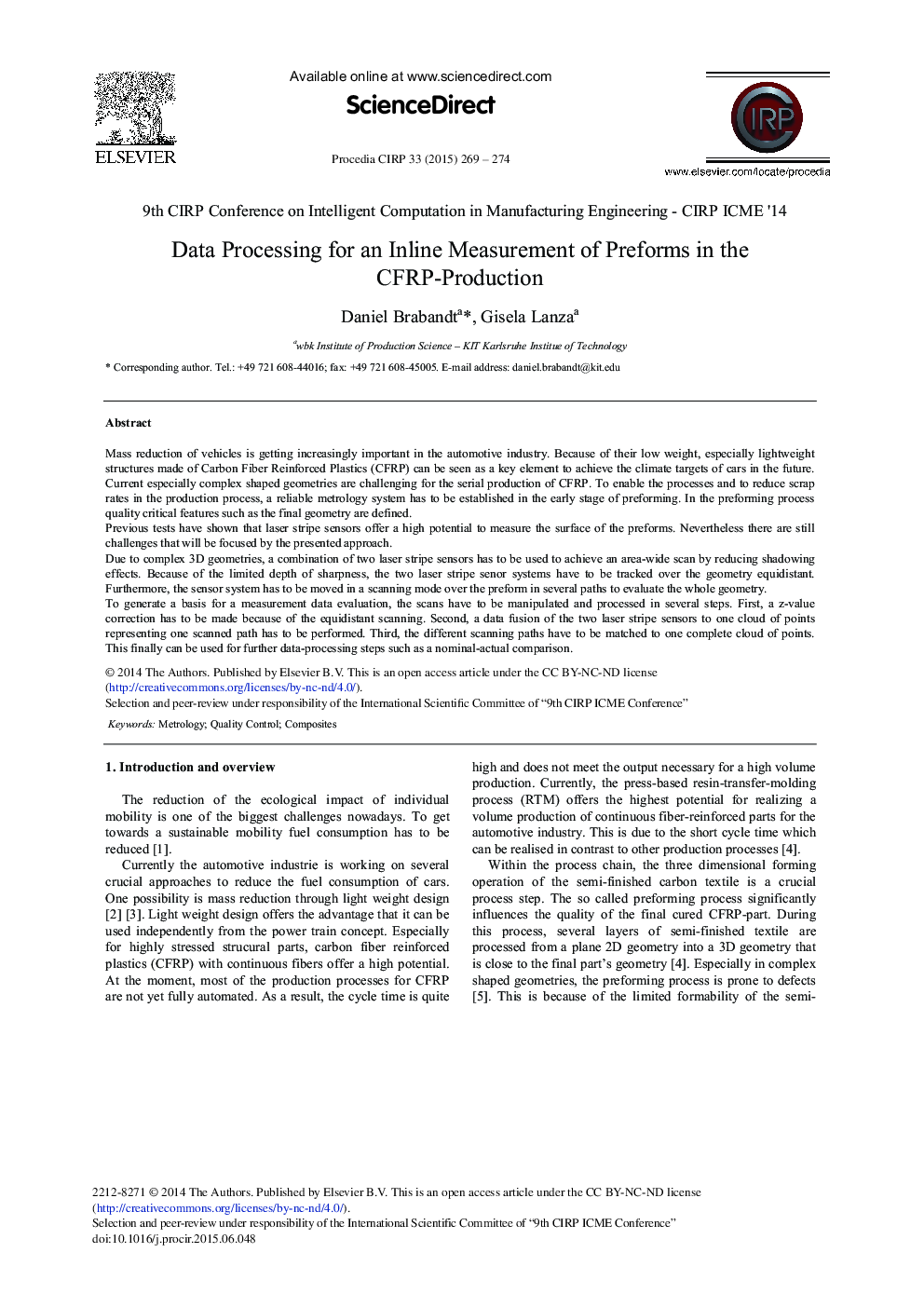| Article ID | Journal | Published Year | Pages | File Type |
|---|---|---|---|---|
| 1699327 | Procedia CIRP | 2015 | 6 Pages |
Mass reduction of vehicles is getting increasingly important in the automotive industry. Because of their low weight, especially lightweight structures made of Carbon Fiber Reinforced Plastics (CFRP) can be seen as a key element to achieve the climate targets of cars in the future. Current especially complex shaped geometries are challenging for the serial production of CFRP. To enable the processes and to reduce scrap rates in the production process, a reliable metrology system has to be established in the early stage of preforming. In the preforming process quality critical features such as the final geometry are defined.Previous tests have shown that laser stripe sensors offer a high potential to measure the surface of the preforms. Nevertheless there are still challenges that will be focused by the presented approach.Due to complex 3D geometries, a combination of two laser stripe sensors has to be used to achieve an area-wide scan by reducing shadowing effects. Because of the limited depth of sharpness, the two laser stripe senor systems have to be tracked over the geometry equidistant. Furthermore, the sensor system has to be moved in a scanning mode over the preform in several paths to evaluate the whole geometry.To generate a basis for a measurement data evaluation, the scans have to be manipulated and processed in several steps. First, a z-value correction has to be made because of the equidistant scanning. Second, a data fusion of the two laser stripe sensors to one cloud of points representing one scanned path has to be performed. Third, the different scanning paths have to be matched to one complete cloud of points. This finally can be used for further data-processing steps such as a nominal-actual comparison.
